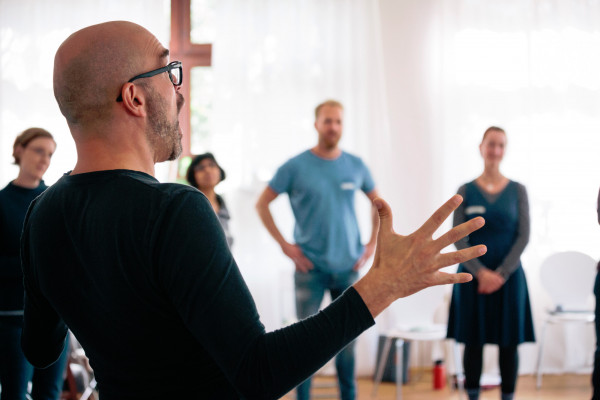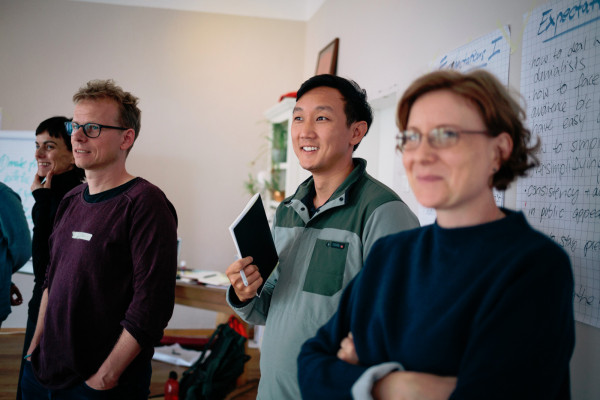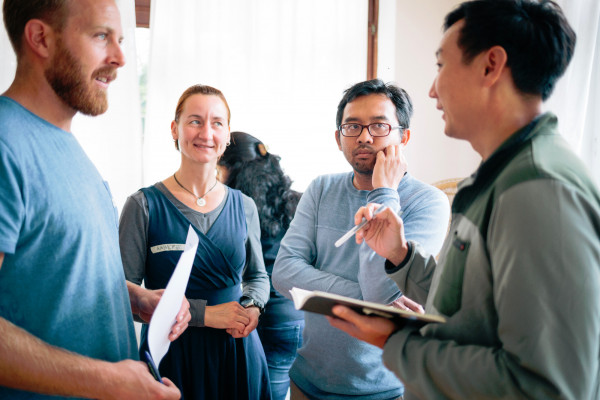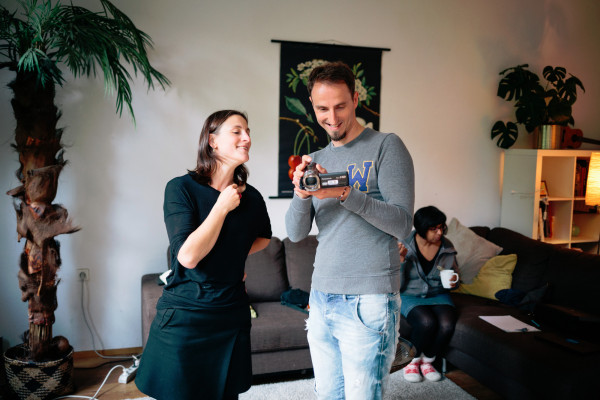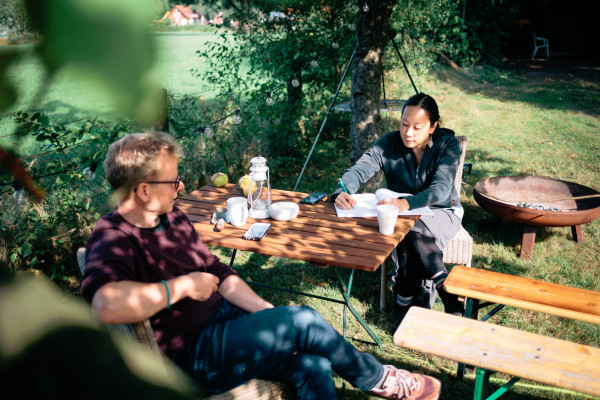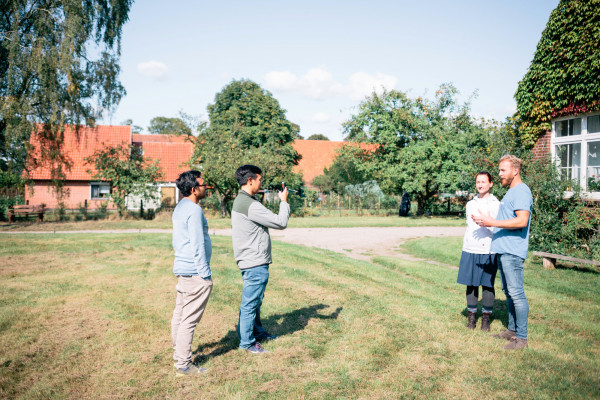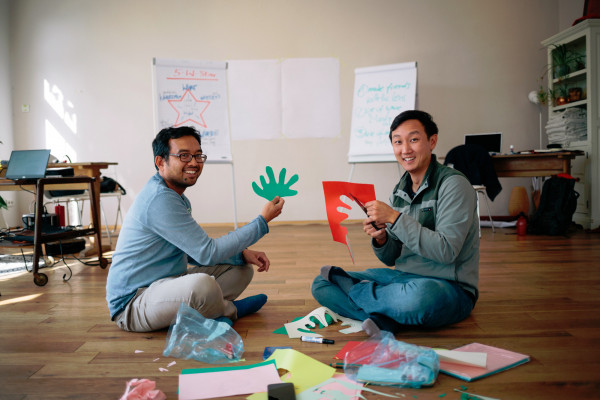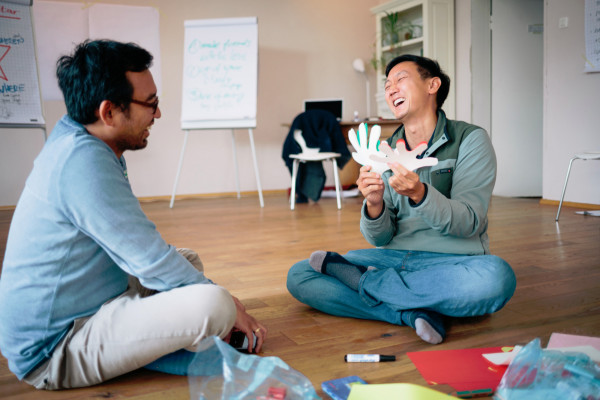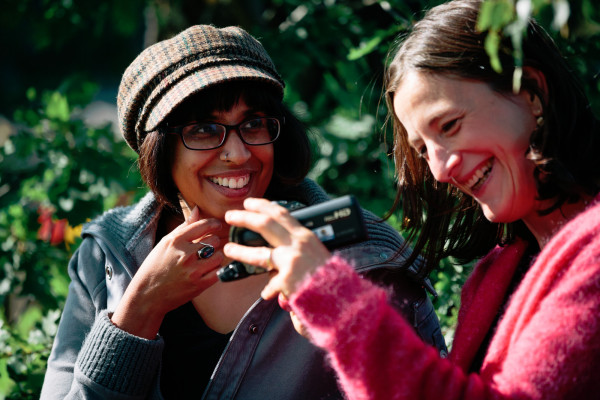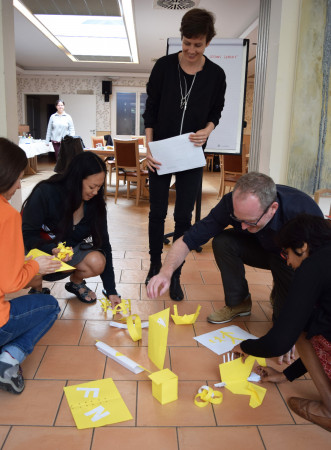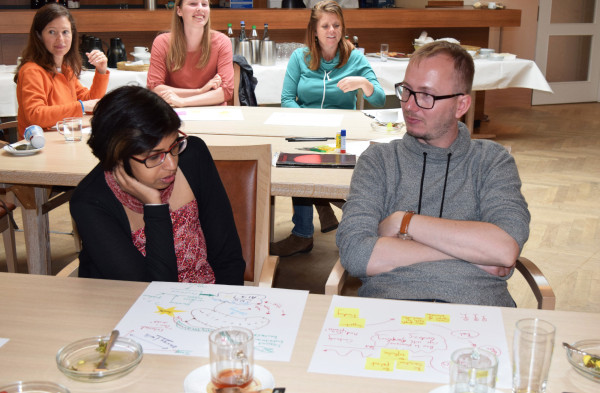Dieser Text ist zur Zeit nur auf Englisch verfügbar...
Postdoc Retreat 2022 (November 25) – Teaching and Learning in Academia
After two years pandemic and online retreats the postdocs were very happy to meet up for an on-site retreat again. The topic “teaching and learning” was chosen and the ZMT postdocs wished to get some insights into theory and experience exchange on this topic. Katharina Günther from Lernenswert was invited to provide professional input and moderation. The retreat focused on the following topics.
- Basics of higher education and on how do students learn
- Teaching as part of the requirements for a career in academia: where, how and what can we teach? How much shall we teach? What are the regulations for becoming an official lecturer or supervisor (BSc, MSc level etc) at the different Universities?
- How to develop a “teaching philosophy” (as required in some hiring procedures)
Postdoc Retreat 2021 (October 8) – Interdisciplinarity
Interdisciplinarity is an important topic for scientists at ZMT. At the same time it can be challenging for early career researchers to engage in interdisciplinary research. Universities and other potential future employers are still structured according to disciplinary departments. The topic was discussed with a key note lecture by Prof. Dr. Ulrich Schaible (CEO Research Center Borstel, Leibniz Lung Center | Speaker Leibniz Research Alliance INFECTIONS | Professor for Biochemical Microbiology and Immunochemistry, University of Lübeck). Prof. Dr. Marie Fujitani (ZMT) gave an impulse lecture on "How it is to be an interdisciplinary researcher and to supervise students from different disciplines".
Due to the measure undertaken as a result of Corona pandemic the retreat took in a virtual space rather than a face-to face encounter away from the office.
Postdoc Retreat 2020 (October 8 & 9, 2020) – Career in German Academia
The main topic that the postdocs wanted to focus on this year was "Career in (German) Academia". On the first day, the up to 12 participants (postdocs, senior scientists and junior research group leaders at ZMT) presented their research profiles and exchanged ideas in small groups on cooperation possibilities.
On the second day, the participants were given an overview by Dr. Janine Reinhard of the academic system in Germany and shown which steps are necessary to get a permanent position. There were impulses to identify own career wishes and strategies as well as information on formal steps such as a habilitation or tenure track professorships. Other career profile requirements such as third-party funding, teaching and supervision experience or honours and awards were also discussed.
One focus was on strategies for recruiting a junior research group. Based on her own experiences ZMT junior research group leader Dr. Marie Fujitani could give some valuable insights into the topic. Prof. Dr. Nils Moosdorf (ZMT & University of Kiel) was available for a Q&A session and spoke very honestly about the challenges of an academic career path and answered many questions.
Due to the measure undertaken as a result of Corona pandemic the retreat took in a virtual space rather than a face-to face encounter away from the office. More info: https://www.leibniz-zmt.de/de/neuigkeiten/nachrichten-aktuelles/archiv-news/zmt-postdoc-retreat-zum-thema-karriere-in-der-deutschen-wissenschaft.html
Postdoc Retreat 2019 (September 8 & 9) – Make an Impact! Science Communication
In this 2-day Retreat the ZMT Postdocs got an insight into methods, how they simplify complex topics and make a personal reference to their topic visible. By doing so, they learned to arouse the attention of their audience and keep it awake. In addition, the scientists learned how to present complex contexts in different scenarios (e.g. Science Slam, Scientific Presentation, interdisciplinary audience etc…) in such a way that they became understandable to the respective public. The 2-day workshop consists of three modules. The experts Dr. Julia Offe and
In Module 1 “Science Communication” they reflected on how to make a good story from one’s own research project and adjust the message to different target audiences. In Module 2 “Body language and voice” participants experienced how to use breath and voice for an authentic performances and how to use body language consciously. In Module 3 “Camera” the postdocs learned what should be considered when speaking in front of a camera and which gestures and movements can be used for an appealing video.
The retreat was facilitated by the trainers Dr. Julia Offe from Science Slam and Andreas Laurenz Maier. It took place outside Bremen in the “Alte Schule Lübberstedt”.
Postdoc Retreat 2018 (June 18) – Creativity & Innovation in my research process
The one-day retreat invited ZMT Postdocs to think about creativity and innovation as important resources in the working process. They had the opportunity to learn some general things about creativity and innovation and to practice "hands on" new tools and methods to use these resources in their own work.
The Office For Applied Intuition (OFAI) guided through the day. OFAI leads teams through innovation processes and support in developing products and projects. They combine methods and processes from designing with elements from team development and organizational development.
The retreat took place outside Bremen in the “Drei-Mädel-Haus”.





